Jenufa from Leoš Janáček in a regie by Katie Mitchell at the Dutch National Opera "We could have went to a nice restaurant for your birthday," she says while Anette Dasch raises her skirt and pulls her tights down. We are on the right side of the stage so we have a good sight of it. The soprano who started the evening with vomiting is sitting on the toilet. We witness in a theater a pretty realistic depiction of pregnancy sickness. It is the trademark of director Katie Mitchell who values realism in the theatre. An approach that seems to fit Jenůfa, an opera that tells about the lifes of ordinary people. OLGA Lifes in which drama is preminent. This goes for both the story of the opera as the life of its composer. For Janáček, the creative process of Jenufa occurred almost synchronously with the sick bed of his daughter Olga. Before the opera premiered in 1904, Olga had died of typhoid at the age of 21. JENUFA The man who made her pregnant leaves her and the man who says he really loves her mutilates her face with a knife. And then her stepmother, in a devastating attempt to save her stepdaughter from the mistakes she herself made in the past, murders Jenůfa's child. In the world of Jenůfa, people are trapped between social conventions and survival instincts. Here the mind finds no way, should it even dare to think about it, to elevate. The title character is the only one who dares to hope for a better future at the beginning of the opera. Before Jenůfa sees her dreams about Števa shattered, the man is loaded with money as well as a thirst for liquor, life passes her by like a soap opera. A soap opera in which the banality of everyday life is turned into high brow art (for lack of a better term) by the music of Janáček. There are some musical similarities with Salome of Richard Strauss (especially in the percussion parts), an opera that was released in the same period as Jenůfa, but more than other operas, Jenůfa - the story of a woman in a patriarchal society - makes me think of a song by the man who has (just like me) his birthday today. John Lennon and his "Woman is the Nigger of the World". KATIE Katie Mitchell sets the story in 2021 and has Anette Dasch play a 42-year-old Jenůfa (the singer's real age). It is background information that is not necessary to understand the setting and the regie. A regie in which profane and vulgar details have to emphasize the worldly character of the play - people go to the toilet more than once (thinking of a Romeo Castallucci-piece I once saw in which someone was shitting his pants - it has become a bit of a cliché to depict realism in the theatre this way). What is human must remain human - any attempt to mythologize must vehemently be avoided. The objective nature of the stage scenery (we see an interior of an office and a caravan) with its claustrophobic appearance, a world from which it is impossible to escape, ensures that the full weight of the drama falls on the shoulders of the characters and the Personenregie. Drama that is in the excellent hands of Anette Dash as Jenůfa, Hannah Schwartz as Buryjovka, Pavel Cernoch as Laca and Evelyn Herlitzius as Kostelnička (Jenufa's stepmother). Yet during the performance I am visited more than once by the idea that a certain abstraction in the design might have lifted the story a bit more above itself. That less emphasis on the tangible would have lifted the story from the stage on which it was presented. The question arises as to whether or not an overly firm pursuit of realism in the theatre not emphasizes that what is shown is, in fact, unrealistic. EVELYN Her voice was never among the largest in the field, The great Wagner roles, Brünnhilde and Isolde, she doesn't do anymore. But with the intensity she bring to her roles Evelyn Herlitzius has almost created a niche for herself. With the vocal part always firmly supported by her acting work, her roles rarely fail to leave a lasting impression. (Patrice Chéreau wanted her for the leading role in Elektra, without her he would not have began on the production that turned out to be his last opera regie.) The great monologue in the second act, in which Kostelnička reveals her motives, shares with us her own chilling logic of killing Jenůfa's child, becomes, through Herlitzius' recitation, a descent into a reality in which illusions invariably perish and experience teaches us that it is better to conform to one's destiny, away from dreams about a happy life. In the end, Jenůfa does exactly that. Her happiness is to exchange the dream of the ideal man for accepting the best option that remains - to marry the man who've cut her face with a knife. Jenůfa accepts her fate. She trades the dream of the ideal man for accepting the best option that is left for her - to marry the man who've cut her face with a knife. DIAMOND With one bang Jenůfa drops the tray with glasses on the ground, a glass bounces off the stage and miraculously lands on its leg. It is a, unintentional, graphic prediction for the ending in which everything more or less lands on its feet. Jenůfa turns out to be capable of an amount of forgivingness that would make the Dalai Lama blush (she forgives her stepmother for the murder of her child, she marries the man who wounded her with a knife). Whether the happiness that comes within her reach will remain, can seriously be doubted. It remains extremely uncertain whether her bond with Laca is a close one and whether the community will fully accept their relationship after all that has happened. "I'm glad we've seen it after all," she says at the end. Orchestra and cast have just delivered a strong piece of music theatre. Music theatre in which music and libretto are strongly intertwined. The music, you can hear a few leitmotivs in it but its use is very sparse, adds to the storytelling but refrains itself from giving too detailed a comment on the action. Whereas the music in a Wagner opera is like a Greek choir, an entity that can contextualise a scene, lies diagonally from the text in order to look forward or look backwards, in Janáček one has to rely mainly on the text for an insight into the motives of the characters and their actions. Text that blends with music and thus forms a sparkling crystal in which many colours can be seen. You do not have to master the Moravian language to get in touch with the text (for their exact meaning, the surtitles remain indispensable), although a basic knowledge of Moravian is probably necessary for a real appreciation of Janáček, his phrasing and how he unlocks musical secrets in the spoken language. Without that, it probably remains a bit like looking at the sparkling beauty of a diamond with sunglasses on. Still beautiful but a not unimportant part of the brilliance you have imagine yourself. The Dutch National Opera, 9 October 2018 Dates 10.6 - 10.25 Conductor: Tomáš Netopil Regie: Katie Mitchell Decor and costums: Lizzie Clachan Jenůfa: Annette Dasch Kostelnička Buryjovka: Evelyn Herlitzius Stařenka Buryjovka: Hanna Schwarz Laca Klemeň: Pavel Cernoch Števa Buryja: Norman Reinhardt - Wouter de Moor
0 Comments
An interview with playwright Allan Leicht and cast members about "My Parsifal Conductor", a Wagnerian comedy Wagner was a man of the theater, almost as much as he was a man of music. The theater stage therefore looks like a natural habitat for the man who is considered by many, not at least by the man himself, as perhaps the greatest, most important composer of all. The Directors Company stages with My Parsifal Conductor a comedic spin-off of real-life events in which Wagner finds himself in a moral, political and musical dilemma when King Ludwig of Bavaria insists that the son of a rabbi, Hermann Levi conduct the premiere of Wagner’s sacred final opera, Parsifal. Wagner & Heavy Metal asked playwright Allan Feicht and cast members Eddie Korbich (who plays Richard Wagner), Geoffrey Cantor (Hermann Levi) and Carlo Bosticco (King Ludwig) a few questions, starting with the most obvious one: Why this play about Richard Wagner? 1. Why a stage play about Richard Wagner? And who came up with the idea? EDDIE KORBICH: Well, why not a stage play about Wagner? So many reasons—he IS a fascinating character after all. I think our playwright Allan Leicht came up with this idea. How do you reconcile a man who is arguably the most brilliant and greatest composer of all time—who changed the way music drama and opera is performed by, among other things, putting the orchestra under the stage and using instruments in ways they were not used before—-how do you reconcile this man with his writings and beliefs of anti-semitism? Now we can springboard from there into a whole range of discoveries as to why “This Play”—-and also with our current political situation—if things resonate in a timely way with that, so much the better. GEOFFREY CANTOR: Well, it seems that the answer to the first part is sort of self-evident. He was a man of enormous artistic talent, an equally enormous ego, and a clearly evident and troubling bias. Pretty fertile ground. The answer to the second question? Allan . ALLAN LEICHT: As playwright, I take responsibility for coming up with the idea for My Parsifal Conductor. I wanted to explore the roots of anti-Semitism, but not through characters clearly villainous, like those of the Third Reich, but through characters we would otherwise admire, like the musical genius Wagner and equally important his wife, Cosima. 2. Who is the true protagonist of the play? Wagner or Levi? EDDIE KORBICH: Actually the true protagonist of the play is Cosima Wagner, Richard’s 2nd wife, and how she changes in her views in finally accepting and appreciating the genius of Hermann Levi. CARLO BOSTICCO: Cosima Wagner is most definitely the protagonist. It is actually a great convention to have her as the narrating voice, as she a wonderfully strong female character (in the play we get to see clearly how her own antisemitic stances affected her husband). More than that, I also think that having her as the emotional focus of the story gives the audience a fascinating "in" for their relationship to Wagner: he is a LOT to handle, but we take his abuse and egomania because of his brilliance. Much like her, and Levi and the King, we are obsessed. ALLAN LEICHT: The true protagonist is Cosima. 3. What kind of public are you aiming at? The Wagner (or classical music) fan or theater public in general? Will people not familiair with Wagner find access to the content of the play? EDDIE KORBICH: Ok, so there are “in” jokes and characters mentioned that will resonate more easily with Opera folk and students of Wagnerian history and there are Jewish terms that will be much more familiar to Jews but the overriding theme of hypocrisy and prejudice and how you deal with treating other human beings in addition to all the facts you learn about these people, is universal and won’t detract from anyone’s understanding of our play. GEOFFREY CANTOR: It is not my place to suggest who the target audience is, but I definitely believe that this play is not only for Wagnerites or Jews. It is a unique piece that is eminently theatrical in tone, conquering huge issues using the convention of a woman’s end of life experience as the gauze or filter through which those issues are broached. CARLO BOSTICCO: I cannot speak for Allan or Bob, but the audiences we have had in preview have ranged from seasoned theatre lovers to fledgling opera students. Allan writes very refined jokes that those who understand the subject matter will relish immensely, but everyone can relate to the meat and potato of the story: the wonderfully complicated human relationships between these characters. ALLAN LEICHT: I hope people unfamiliar with Wagner will relate to the play on the level of entertaining theater. The core audience for the play, we believe, will be, of course, Wagnerites, and Jews. 4. A lot has been said and written about Richard Wagner (the story that only about Jesus and Napoleon is written more than about Wagner is apocryphal but still). Did you try to understand him better by doing this play? EDDIE KORBICH: Well I play him so, yes. I had a horrible time at first with the ugly things I have to say. I tried putting it in the time period and tried to get my mind set as to the thinking of that historical period. Then one day Alan and Bob, our director, said something that acted as a jumping off point for me into understanding pretty much everything. And that was—-that the anti-semitism in Germany before Hitler and the 1930’s was a different type of anti-semitism from after the 1930’s, especially in my scenes which take place in the 1880’s. Once I started saying and thinking in terms of their way of thinking which was more like—“well everybody knows this, it’s not a secret—all Jews are good with money but not good in other areas—what’s the problem? —everyone knows this”— that kind of completely accepted generalization with no venom behind it—that’s what we’re dealing with and THAT can sometimes be more insidious than the venomous, hatred type of prejudice. And then, after all of Wagner’s really dreadful writings from his early life—Alan found a quote of his very near the end of his life where he says to his wife, Cosima, “If I were to write again I would say that I have nothing against the Jews. It is just that they descended on us Germans too soon and we were not yet ready enough to absorb them.” Well that was a turning point for me and also in our play. Does it forgive him? That’s question 5. GEOFFREY CANTOR: Perhaps. I certainly dislike him less. ALLAN LEICHT: Yes, I learned a great deal about Wagner and the people surrounding him. 5. Thinking about Wagner, his musical genious and his antisemitism. Does good / excellent art forgives its maker / creator for his flaws? EDDIE KORBICH: This is my opinion. Excellent Art doesn’t forgive anything and doesn’t need to. It just is. If Art is excellent it speaks for itself IN EXCELLENCE. And it is created independently of any flaws or beliefs of it’s human creator who is the conduit for it to be brought into being. Whew! Crunchy Granola spiritual stuff, huh? But that is my opinion. What happens, at least for me, is that it is tarnished — the excellence is tarnished in my observation of it because of my knowledge of the faults or perceived flaws of it’s creator. I can’t listen to Bill Cosby routines without thinking of his actions. I can’t read certain authors now without having things they did that were made public in the back of my mind when I read their writings. And that’s a shame. Maybe some people can separate it but, I’m not so evolved. But that wasn’t your question —you asked if excellence forgives and I would say —-it’s up to each individual how little or how much they choose to allow forgiveness, if at all. GEOFFREY CANTOR: Well that’s the question of the play. I leave it to the audience to make that determination. Does it ever? CARLO BOSTICCO: We look back now on the questionable stances of many of our classic authors and musicians and we try to understand them from a psychological point of view. Just recently I was rereading some of the work by Lovecraft and the blatant racism hit me like a ton of bricks. In his case, xenophobia is justified as an extension of his fear of the "other" and his personal psychosis. With Wagner, his motives are quite a bit harder to fathom. On one hand antisemitism was the norm, on the other it didn't go completely unchallenged. In my research I found that King Ludwig himself had written a letter to Wagner rebuking him, saying that "Humans are pretty much all brothers". In the play it is at least implied that Wagner's antisemitism stemmed from insecurity about who his own father was, and the resulting destabilization. I get to say this wonderful line in the play to Wagner: "You have made jews your demons, and you cannot live without them. Could it be: no jews, no demons, no Wagner?". I believe inner darkness, in itself a wound, can be a source of artistic inspiration. Should we as artist embrace it? I think yes, but only in order to turn it into Light, to work through it and help others do the same through the cathartic process unique to Art. Just to indulge your demons is decadent and puts the artist's ego center stage, where Art should be. ALLAN LEICHT: Tough, inevitable question. Great art cannot forgive bad behavior or worse, neither, of course can stupid art. The play poses the question of whether or not we should judge men by their music. I personally believe that while we can separate artists from their work, we must also be wary of the evil that charm can conceal - more than wary, we must be vigilant. Too short an answer for a huge question. 6. Nationalism and the far-right claim their place (again) in the political landscape. Did this play a role in chosing Wagner (and his antisemitism) as a subject for this play? EDDIE KORBICH: Quick answer—-it’s certainly timely that this play is being done right now in our political climate. But “play a role in choosing this subject”? That’s for the playwriter to answer. GEOFFREY CANTOR: I didn’t write it or choose to produce it. But the timing given the current political landscape is not lost in anyone. ALLAN LEICHT: Short answer, no, this play was not written in view of any political landscape. Nationalism is currently in the philosophical and sociological doghouse. However, nationalism is not by definition supremacism. There is a scene in My Parsifal Conductor about Theodor Herzl and the Second Zionist Conference in 1898, where Tannhauser was played. Herzl's Zionism was inspired by Wagner's nationalism. 7. Is this there something special you did for preparing for your role? EDDIE KORBICH: I am a very physical actor and so much of the description that Allan had for Wagner is really close to my own way of living—-stop! I’M NOT AN ANTI-SEMITE!! No I mean the “70 year old child” line (although I’m not 70 ) and always on the brink of tears or dance—and me feeling that my egocentric needs are more special than others (truly, you should try living with me)— yes I can relate to all of that very easily. I grew up surrounded by classical music so the music appreciation including the conducting is second-nature for me. But his chin and his slight jutting of his jaw?—no I don’t have that but I try to judiciously incorporate that into the performance. We didn’t physically putty my nose but we did work on the hair and that bizarre “neckstrap of hair —-what is that? A neck beard?” And who ever thought that was an attractive look? Anyway, we have that and it really helps me every time I see my finished look capped off with the beret. If you want to know if I went back and listened to every bit of music and read every biography and criticism about him—————ummmmmm no? Sorry? It wasn’t that kind of preparation. Now, I’ve known and worked with Sondheim quite a bit and some of my performance is inspired by his genius. Yeah, absolutely, I even know the moments where I channel Steve—he is the only genius who I’ve met that could inform some of this part for me. That’s about it. Except that I learn more and more with each performance. GEOFFREY CANTOR: Safe to say we all listened to a lot of Wagner. CARLO BOSTICCO: There is a lot of stuff about Ludwig to be found. I watched the Luchino Visconti movies with Helmut Berger for a start and read his (absolutely extraordinary) diaries and letters. Also, when they heard I got cast, my parent went to visit the castles Ludwig built in Bavaria. My dad sent me a 30 minutes video montage for research. I have the best support network! ALLAN LEICHT: I cannot speak for the actors, but I do know that the result is that Eddie Korbich did an enormous amount of creative soul-searching in preparation to play Wagner, whom he plays with extraordinary humanity. And Claire Brownell, who is riveting as Cosima, delivers an extraordinarily sincere, warm, chilling, and honest portrayal of Cosima, an anti-Semite who truly means no harm. Did they know or care that what they thought and said would lead to what it led to? 8. A comedy about a composer. I had to think about the movies Ken Russell made about Liszt (Listzomania), Richard Strauss and Mahler. Are there movies and/or stage plays that were an inspiration? ALLAN LEICHT: My Parsifal Conductor is stylistically most directly influenced by Noel Coward (Blithe Spirit), G.B. Shaw, Dickens' ("A Christmas Carol"), and, structurally, Miller's Death of a Salesman. And of course, yes, encouraged by the success of Peter Shaffer's Amadeus. 9. Is there music in the play? EDDIE KORBICH: Throughout! Little phrases and themes all throughout. CARLO BOSTICCO: There's a ton. Mostly Wagner's. I get to represent the "opposition". As the "gondolier" I sing a lot of Italian arias in one of the scenes: Verdi, Rossini... mostly so Wagner can disdainfully turn up his nose at the inferior composers! ALLAN LEICHT: Of course there is Wagner's music. Not so much as would overwhelm the play, which Wagner's music could easily do. Wagner also hums a little Brahms. 10. What is your favorite Wagner opera? EDDIE KORBICH: Can’t pick just one—that’s like asking what role is my favorite GEOFFREY CANTOR: Didn’t have one. CARLO BOSTICCO: My very first opera experience was the Ring Cycle. Yes. All of it. It was a quadruple bill. I was a little traumatized at the end. ALLAN LEICHT: Mine would have to be the one I am listening to at the moment, but probably Meistersinger because it is the most human. And Meistersinger is a Wagnerian "comedy." Bonus question: Who do you prefer as a conductor for Parsifal: Pierre Boulez or Hans Knappertsbusch? EDDIE KORBICH: Bernstein. Can we resurrect him? GEOFFREY CANTOR: It depends. Which one is better? ALLAN LEICHT: Wow! Very educated question! I'd have to listen to both again. Most memorable for me is Solti. (This interview took place via email) - Wouter de Moor
|
TIMELINE
July 2024
|

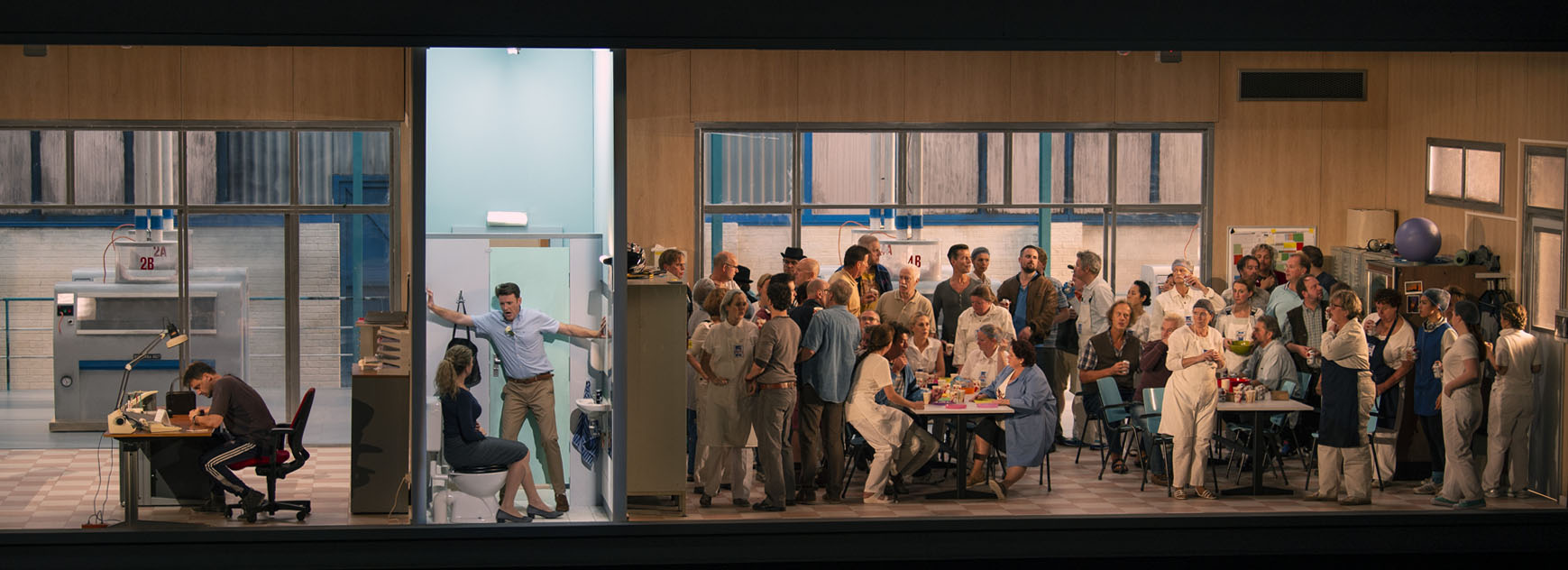
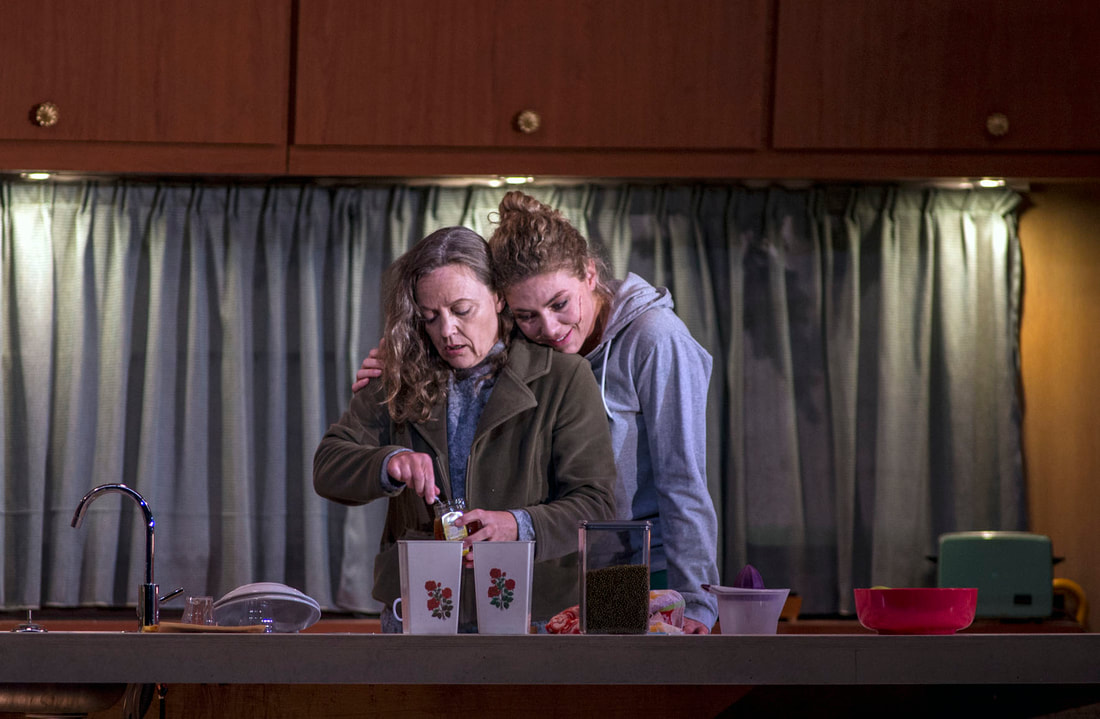
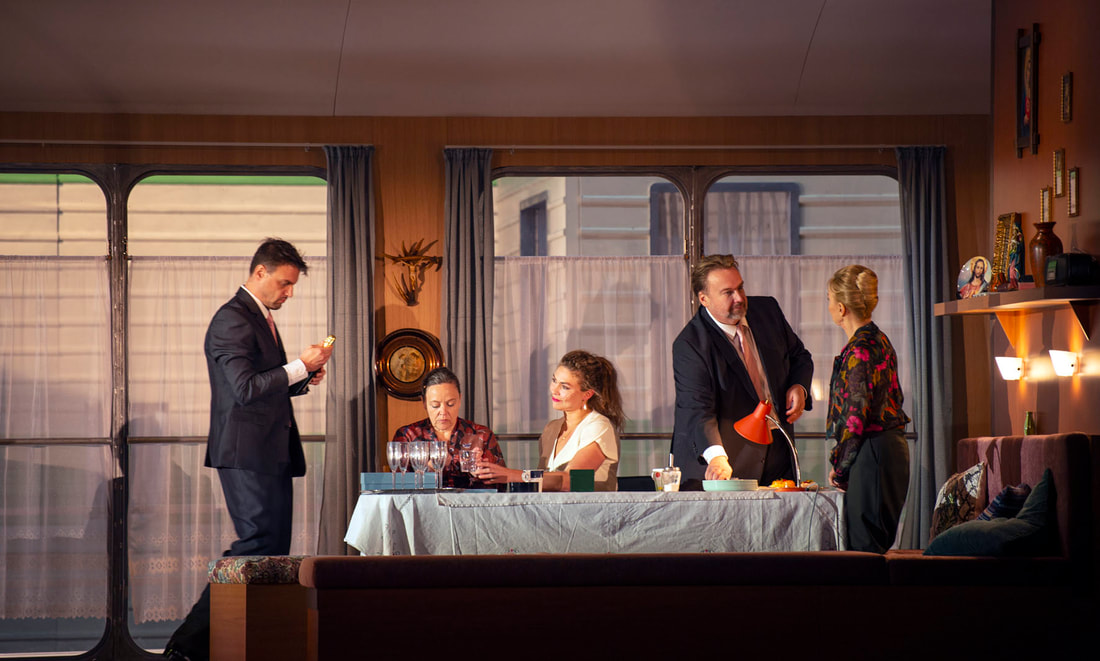
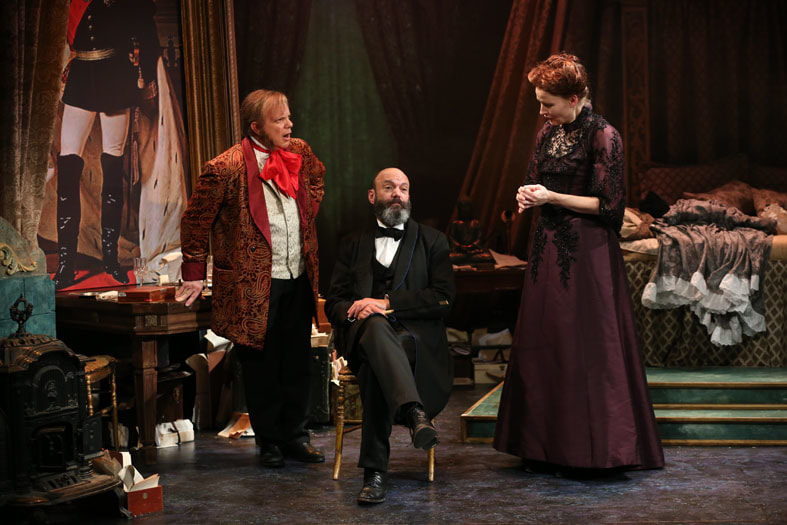
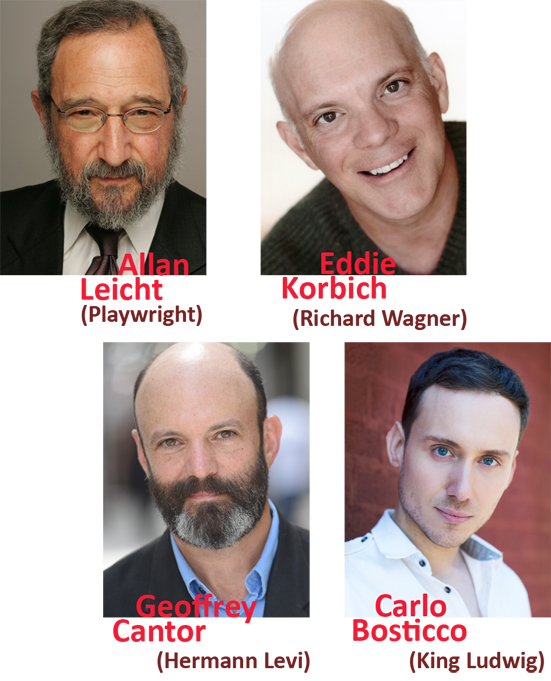
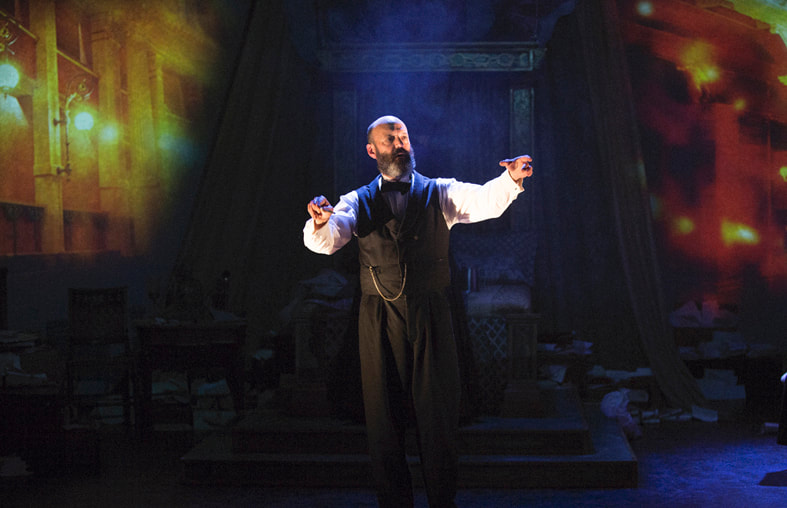
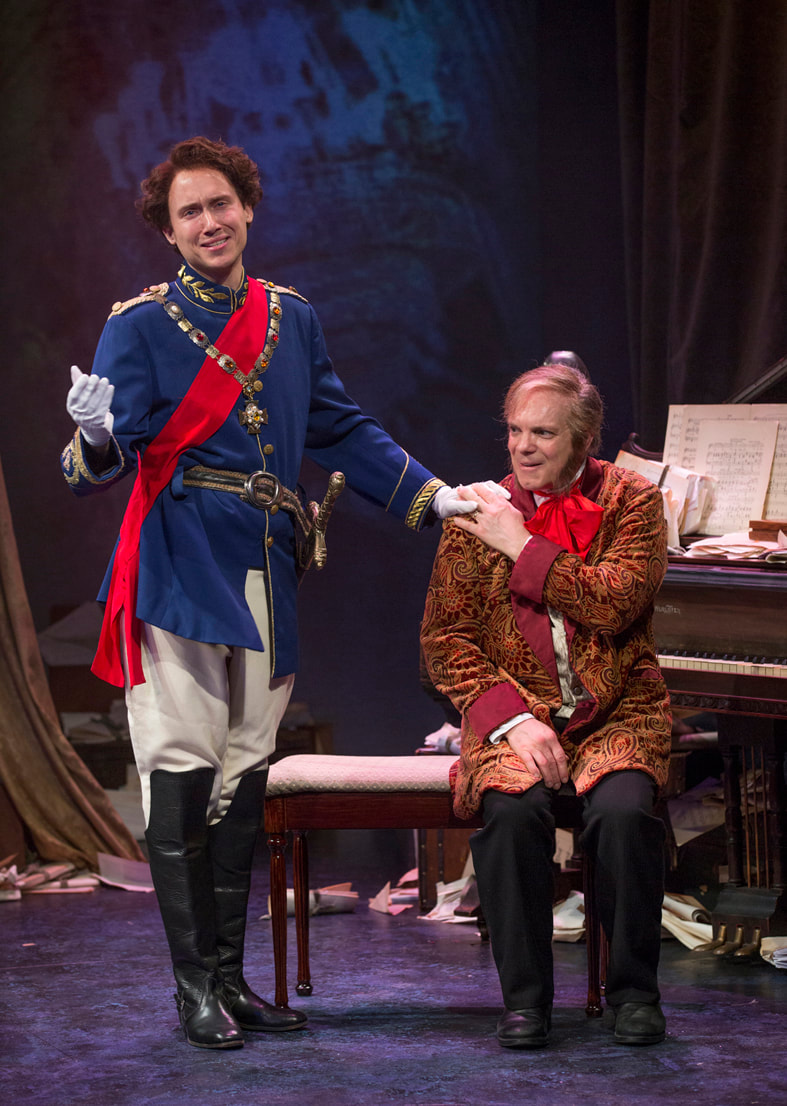
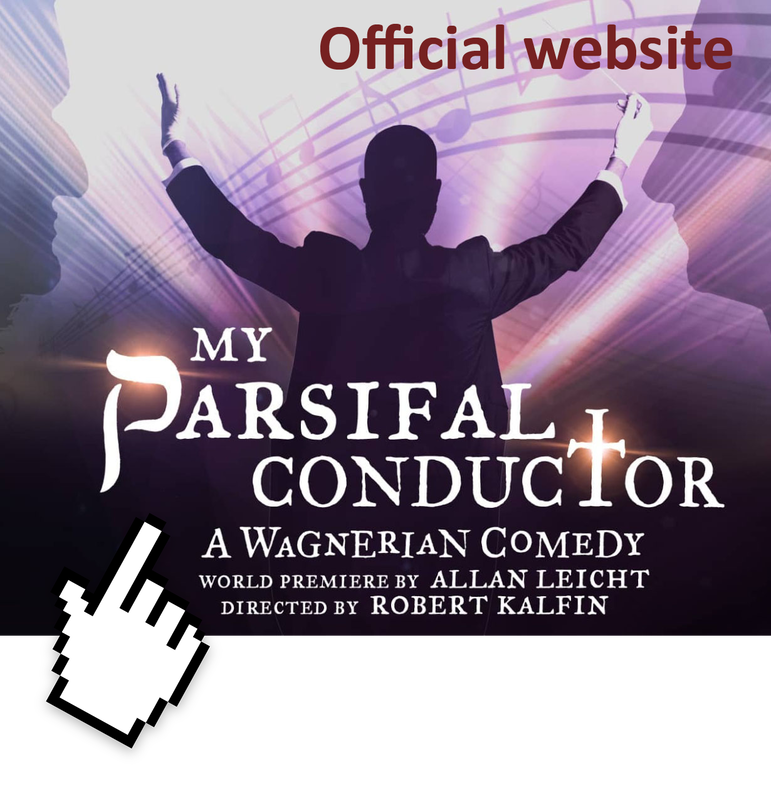
 RSS Feed
RSS Feed